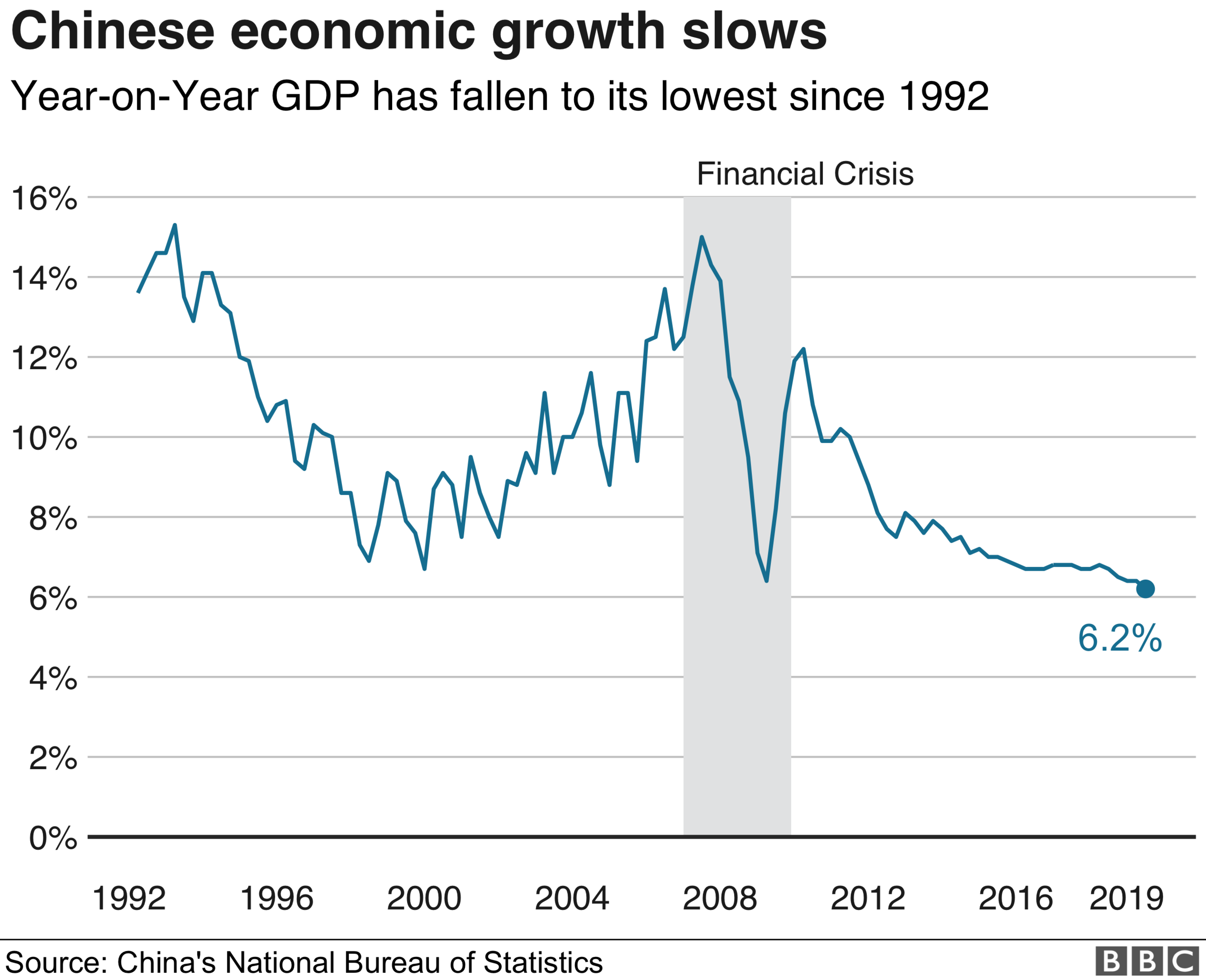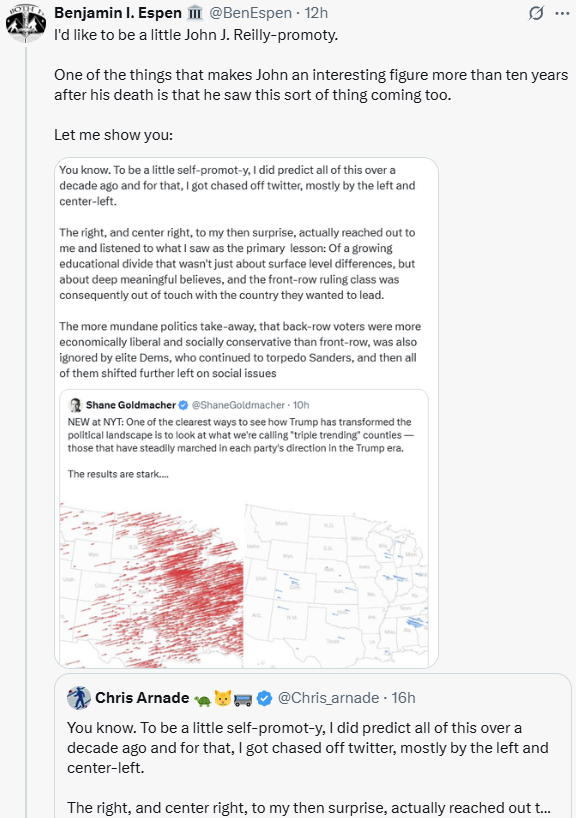The Long View 2008-01-28: Iraq as Parable; The Grossraum Fallacy

I do find it interesting that John J. Reilly’s comment here on a primary function of government, the promotion of just order:
The Iraq War might stand as a metaphor for the whole episode of Movement Conservativism in American history. It started well enough, and it got rid of many things that needed to be gotten rid of, but it had no appreciation at all for the fact that the primary social problem is not the prevention of tyranny but the control of chaos.
doesn’t link up with his later comment on the purported instability of the Chinese state:
…China, which has shown that you can have an illiberal political system and dirigist but market friendly economy.
No, you can't. That model has been tried again and again, always with the same unhappy result. China today is the great laughing burstable Buddha bubble. Gordon Chang is overdue, but he is still right.
If anything, it is pretty clear that the Han feel that they are doing just fine controlling chaos. Their state and their laws are not in line with what either John or I would describe as an ideal form of government, but the collapse predicted by Gordon Chang just keeps not happening. In the last decade, economic growth has slowed considerably in China, but the rate is still high compared to developed nations.
What that portents for the future, I cannot say. The current system in China only about thirty years old, so perhaps Chang still has time to be right about this.
Iraq as Parable; The Grossraum Fallacy
Fred Barnes gives President Bush both praise and blame in his Weekly Standard piece, How Bush Decided on the Surge:
At the White House, officials began to question the military strategy in Iraq and the assumptions behind it. American forces had been pursuing a "small footprint." Its rationale was that Americans were an occupying force whose presence stoked the Iraqi insurgency. So the strategy was to keep U.S. troops out of Iraqi neighborhoods as much as practicable. They were camped instead in large installations, mostly outside Baghdad, and deployed on missions to destroy al Qaeda terrorists and insurgents.
There was another crucial assumption shared by American military leaders: Iraqis had to step up first. Violence wouldn't subside until the new Iraqi government took tangible steps toward reconciliation between Sunnis and Shia. Reconciliation was a precondition for security. And while the American military could train and equip an Iraqi army, it couldn't win the war. If Bush was skeptical of the small footprint, he never expressed it. He accepted the assurance of his commanders that the strategy was working--until [the great mosque at] Samarra [was bombed and Iraq lurched toward civil war]....[Meanwhile] General Keane kept in contact with retired and active Army officers, including Petraeus, who believed the war could be won with more troops and a population protection, or counterinsurgency, strategy--but not with a small footprint.
To paraphrase Barry Goldwater, "An occupying army that can't do anything to you can't do anything for you." The Iraq War might stand as a metaphor for the whole episode of Movement Conservativism in American history. It started well enough, and it got rid of many things that needed to be gotten rid of, but it had no appreciation at all for the fact that the primary social problem is not the prevention of tyranny but the control of chaos. The Surge and its success are, no doubt, the elements of the metaphor that relate to the future.
* * *
Meanwhile, Grossraum theory is in full flower at the New York Times, whose Sunday Magazine cover article is Waving Goodbye to Hegemony by Parag Khanna of the New America Foundation.
The basic model here resembles nothing so much as Carl Schmitt's idea of a world of Grossräume, of strategic "great spaces":
The Big Three are the ultimate "Frenemies." Twenty-first-century geopolitics will resemble nothing more than Orwell's 1984, but instead of three world powers (Oceania, Eurasia and Eastasia), we have three hemispheric pan-regions, longitudinal zones dominated by America, Europe and China.
The piece does not mention Schmitt, perhaps because it remains indelicate to do so in some quarters, but there is an allusion to "theorists" of the first half of the 20th century who turned out to be right after all. There is one mention of Spengler and many of Toynbee. At no point, however, is there any sense of intra-civilizational dynamics, that maybe these great blocs are on quite different trajectories, and indeed are quite different things.
Again, the fallacy with this sort of model is that it projects onto a global screen the Great Power politics of balance that characterized 19th century Europe. In that time and place, each Great Power was comparable in power and political species to every other, each a state facing other states of the same political community. In reality, the US, China, and the EU are different kinds of things, as different as a bird, a lobster, and a cactus. They can all be in the same ecology, but not in the same community.
The author apparently has a book out about the "Second World," meaning rapidly developing middle-sized countries that are looking for a model. Judging from this article, he believes the Second World is falling into the orbit of China, which has shown that you can have an illiberal political system and dirigist but market friendly economy.
No, you can't. That model has been tried again and again, always with the same unhappy result. China today is the great laughing burstable Buddha bubble. Gordon Chang is overdue, but he is still right.
Copyright © 2008 by John J. Reilly
Support the Long View re-posting project by downloading Brave browser, and then trying it out. With Both Hands is a verified Brave publisher, you can leave me a tip too!



Comments ()